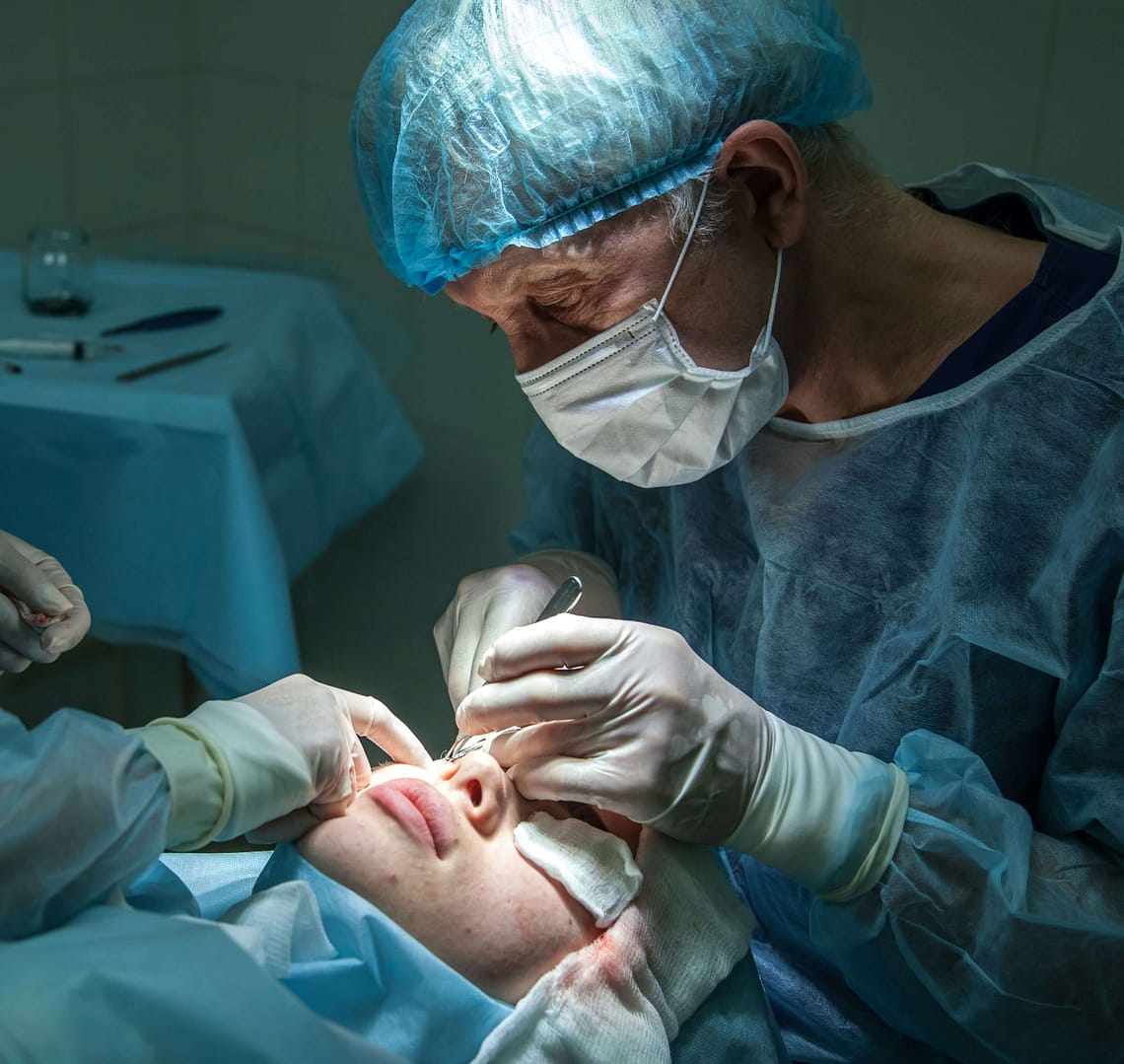Let’s face it, glasses can be a pain. They fog up when you wear a mask, constantly slip down your nose, and forget trying to rock a stylish pair with your new haircut. So, it’s no wonder eye surgery like LASIK has become so popular. The idea of ditching the specs and waking up with perfect vision sounds pretty darn appealing. But before you book yourself in, let’s talk about eye surgery complications and how to stay safe.
Seeing Clearly on the Risks
Eye surgery is a medical procedure, and like any procedure, there are risks involved. Now, I’m not trying to scare you off! Most eye surgeries are incredibly safe, with success rates well over 90%. But knowledge is power, and being aware of potential complications is key to making an informed decision.
One of the most common side effects is dry eyes. This can happen because the nerves responsible for tear production get a bit ruffled during surgery. It’s usually temporary, lasting a few weeks or months, and can be managed with lubricating eye drops.
Another potential issue is glare and halos, especially around bright lights at night. Again, this is usually temporary, but for some people, it can persist. It’s important to discuss this possibility with your surgeon beforehand, especially if you drive a lot at night.
In very rare cases, more serious complications can occur, like infection or corneal ectasia (a weakening of the cornea). That’s why choosing the right surgeon is absolutely crucial.
Finding the Right Doc: Your Eye Captain on This Vision Quest
Finding a good eye surgeon is like finding your favourite pair of jeans: it takes some searching! Here are some tips to help you on your quest:
Board Certification:
Make sure your surgeon is certified by the Royal College of Ophthalmologists (RCOphth). This guarantees they’ve met the highest standards of training and experience.
Experience Matters:
The more LASIK procedures a surgeon has performed, the better. Look for someone who specializes in refractive surgery and has a proven track record.
Technology Talk:
Ask about the type of laser technology your surgeon uses. Newer technologies generally offer greater precision and faster recovery times.
Communication is Key:
Don’t be shy! Ask your surgeon plenty of questions about the procedure, the risks, and what to expect afterwards. A good surgeon will take the time to address all your concerns and ensure you’re comfortable moving forward.
Prepping for Take-off: How to Prepare for Eye Surgery
So, you’ve found your dream eye surgeon, booked the surgery, and now you’re wondering what to expect. Here’s how to prepare for a smooth landing:
1. The Big Stop:
Your surgeon will likely advise you to stop wearing contact lenses for a few weeks before surgery. This allows your cornea to return to its natural shape.
2. Med Check:
Inform your surgeon about any medications you’re taking, including over-the-counter drugs and supplements. Some medications can thin the blood and increase your risk of bleeding during surgery.
3. The Knowledge is Power:
Your surgeon will provide you with detailed pre-operative instructions. This might include avoiding wearing makeup or lotions around your eyes for a certain period beforehand. Read these instructions carefully and follow them to the tee.
4. Support System on Standby:
Arrange for someone to drive you home after surgery and help you out for the first 24 hours. Your vision will likely be blurry, and you won’t want to be worrying about navigating public transport.
Receive a Call About Your Claim
Keeping Your New Peepers Perfect: Post-Op Care Like a Pro
Congratulations, you made it through the surgery! Now comes the fun part: recovery. Here’s how to ensure your new vision takes flight:
- Rest and Recuperation: Your eyes need time to heal, so take it easy for the first few days. Avoid strenuous activities, swimming, and anything that could irritate your eyes.
- Eye Drops Are Your BFF: Your surgeon will prescribe eye drops to help combat dryness and prevent infection. Use them religiously, exactly as directed.
- Listen to Your Body: It’s normal to experience some discomfort after surgery, like stinging or light sensitivity. But if you experience any severe pain, unusual discharge, or a sudden decrease in vision, contact your surgeon immediately.
- Follow-Up is Key: Attend all your scheduled follow-up appointments with your surgeon. This allows them to monitor your progress and address any concerns you might have.

Making a Personal Injury Claim with National Claims
At National Claims, we understand that even the most skilled surgeons can encounter unforeseen complications. If you’ve suffered vision loss or other eye injuries due to negligence during eye surgery, you may be entitled to compensation. Here’s how we can help you navigate this challenging situation.
Free Consultation and Case Evaluation:
Our process begins with a free consultation to understand the details of your case. We’ll listen to your story and carefully evaluate your medical records to assess the circumstances surrounding the surgery. This initial step allows us to determine if negligence played a role and provide you with valuable insights on the viability of your claim.
Expert Representation:
We will connect you with a solicitor from our panel who will be able to assist you with you case, We’ll ensure your rights are protected and that you receive fair compensation for damages such as:
- Medical expenses related to treating the injury
- Lost wages due to missed work
- Pain and suffering caused by the injury
- Emotional distress
No Win, No Fee:
At National Claims, we’re committed to making justice accessible. That’s why we offer a “No Win, No Fee” agreement. This means you won’t incur any upfront legal costs. Our fees are contingent on the success of your claim, so you can pursue compensation with confidence, knowing we’re invested in achieving a positive outcome for you.
*Customers pay up to 25% (incl. VAT) of the amount recovered towards solicitor costs and if you cancel outside your cooling off period, you may be charged a fee.
Compassionate Support Throughout the Process:
We understand that experiencing vision loss or complications after eye surgery can be a devastating experience. Our team is here to provide you with compassionate support throughout the entire claims process. We’ll be by your side to answer your questions, address your concerns, and offer emotional support during this difficult time.
Helping You Recover What You Deserve:
Our goal is to help you recover the compensation you deserve to cover your medical expenses, lost wages, and pain and suffering. We’ll fight to hold the negligent party accountable and ensure you receive fair compensation for the impact this injury has had on your life.
Contact National Claims Today:
If you’ve suffered eye injuries due to complications during eye surgery, don’t hesitate to contact National Claims. We offer a free consultation to discuss your case and explore your options. Let us help you navigate the complexities of a personal injury claim and fight for the compensation you deserve.
Contact us today to speak to one of our claims agents who will be able to help you get started on your claim.
Click below to see why we are one of the most trusted claims management companies in the UK.

We’re proud of our excellent customer reviews
We thrive on delivering exceptional service and ensuring our clients’ satisfaction. Don’t just take our word for it. Check out some of our independent reviews to see what our clients have to say.
Excellent

This firm is excellent, they sorted out my car pay out and injury claim very fast, they always communicate with you all the time.

My accident case was dealt with confidence and with great result of the outcome, especially James kept me informed all the time.

I was very impressed at the way my inquiry was treated. I was listened to attentively and everything I needed to know was explained to me.






